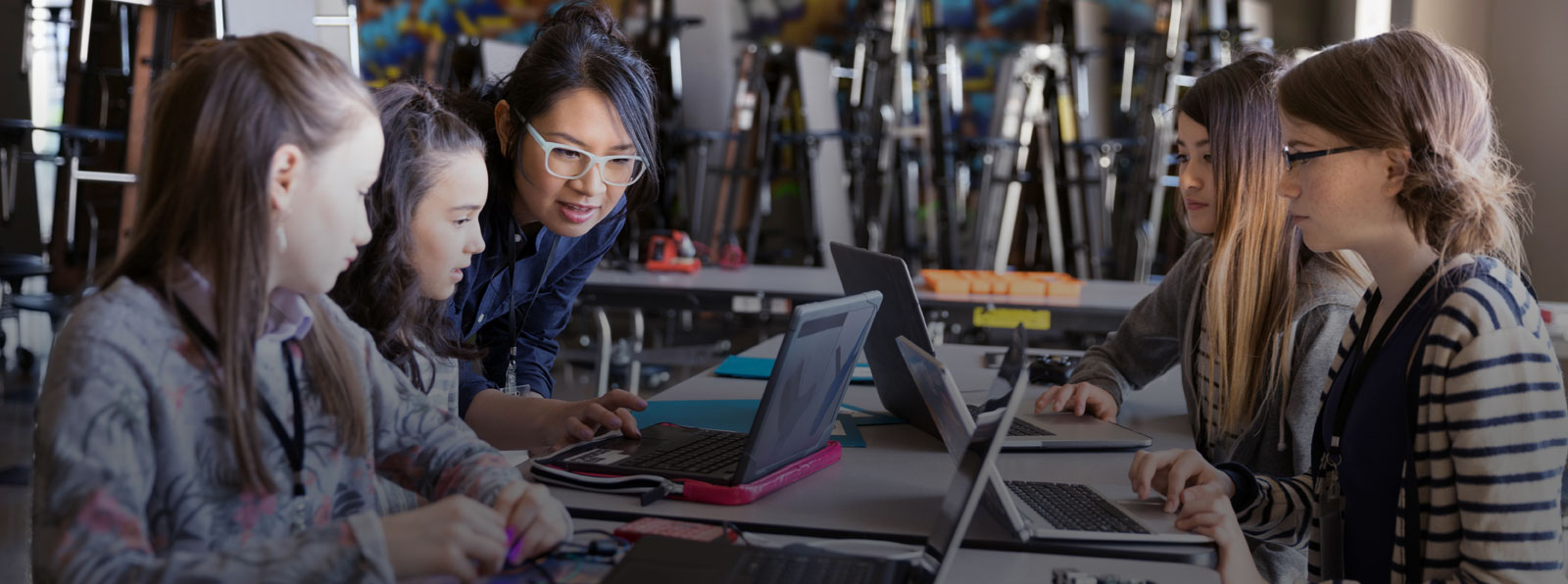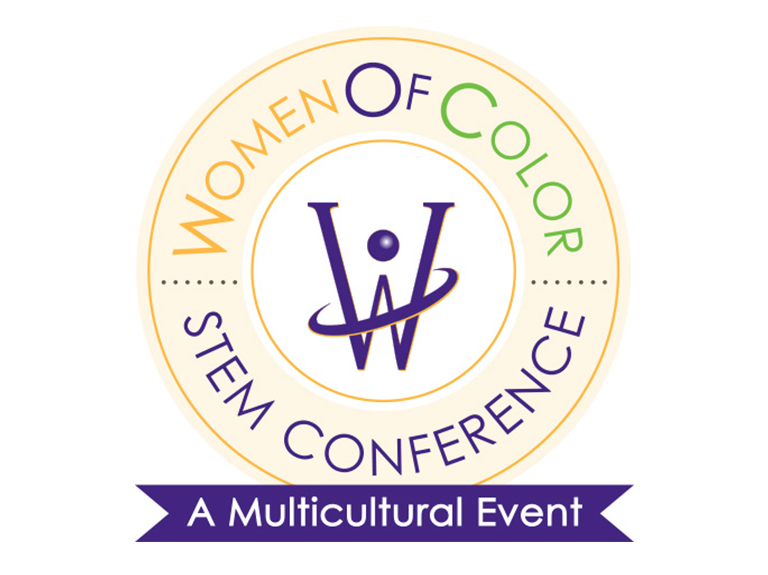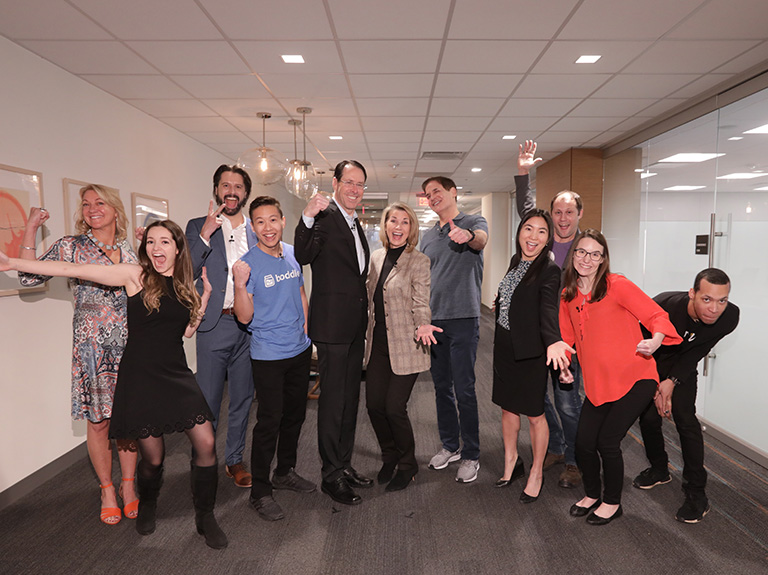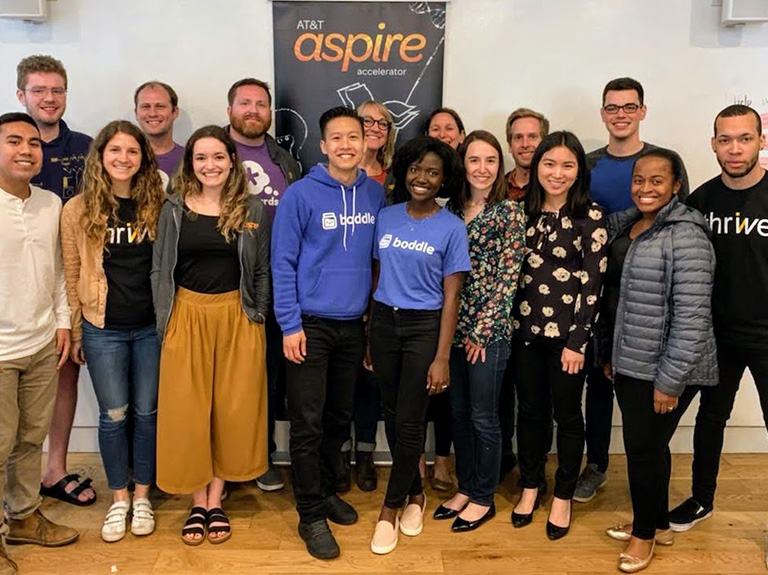AT&T Contributing $1 Million to Girls Who Code Sisterh>>d Campaign, Summer Coding Camps
Sisterh>>d Aims to Bring STEM to Girls Around the World
Meredith Tannor’s introduction to computer science in 2013 changed the way she looked at the world. It was during a Girls Who Code (GWC) camp that summer at AT&T’s New York City offices when she began to realize how programming could improve things.
Meredith is just one reason why AT&T* is contributing $1 million to continue supporting GWC’s summer coding camps for girls and the organization’s forthcoming Sisterh>>d Campaign. It’s a unique digital-visual album aimed at empowering young women to pursue computer science and STEM fields.
“Instructors told me to look at the world through my daily life and find a problem,” Tannor said. “Any problem – no matter how big or small – and by using computer science I could generate a solution. Now, I search for problems and think critically about how my coding could provide a solution.”
The Challenge
There are an estimated 2 million job openings in the U.S. because of a lack of qualified candidates[1], many of which are in STEM-related fields.
Additionally, STEM-related fields, in particular, are experiencing a broad lack of gender and diversity representation. AT&T wants to ensure we’re developing technology for people by those who represent all types of perspectives and backgrounds.
The Action
We began supporting GWC in 2013. Since that time, thousands of girls have passed through the organization’s coding camps and many, such as Meredith, have stuck with it. She is currently a senior at the University of Wisconsin majoring in computer science.
“We believe every student deserves opportunities to reach his or her full potential. By removing barriers, we’re helping ignite innovative solutions and create connections,” said Nicole Anderson, assistant vice president of corporate social responsibility at AT&T and president of the AT&T Foundation. “AT&T is proud to collaborate with Girls Who Code as the premier corporate sponsor of the Sisterh>>d campaign. The work they’re doing is exposing young women around the globe to countless possibilities provided by STEM education.”
Sisterh>>d will launch in early October, the week of International Day of the Girl. The campaign is a first-of-its–kind and will embody the spirit of empowerment and support that Girls Who Code represents, inspiring young women around the world to stand up, speak out and support one another.
During development, GWC sought input from an Advisory Council of 50 girls from around the world, as well as influential women in industries including entertainment, non-profit and technology.
“Girls Who Code has always been about more than leading the fight to close the gender gap in tech. We’re a movement, and above all: a Sisterhood,” said Girls Who Code Founder and CEO Reshma Saujani. “There is nothing like the power of Sisterhood, and no one that understands that more than this rising generation. We intend for this album to inspire young women around the world to fight for what matters to them, their families, friends and communities.”
Our Approach
In addition to GWC, we support Imagination Foundation, Code.org, Black Girls Code and other organizations promoting innovation and interest in STEM through after-school programs, camps, hands-on technology labs and robotics competitions.
AT&T and the AT&T Foundation have invested more than $144 million to support STEM initiatives in the past 30 years. And since 2012, more than 350,000 students have received more than 2.2 million hours of mentoring by our employees.
“We’re investing in education and job training to create a skilled and diverse workforce that powers our country – and our company – for the future,” said Alicia Abella, vice president of Operational Automation and Program Management at AT&T. “I started my career at AT&T Bell Labs, the heart of our company’s R&D work, and have experienced firsthand the evolution of advanced technologies like artificial intelligence (AI) and edge computing. As technology continues to accelerate, it’s even more important for the tech industry to embrace a diverse pipeline of employees to fuel 21st century jobs.”
One technology area that’s struggling with a shortage of diversity is AI.
According to Element AI, an AI solutions provider, there are fewer than 10,000 people in world who have the skills necessary to tackle serious AI research. And, the tech industry in general is mostly male and culturally homogenous.
However, inadequate representation can be detrimental for technologies like AI, which becomes a reflection of its creators in many ways and build unconscious biases.
This fall, we’re exploring ways to add parts of AT&T University’s Machine Learning Program into the Aspire Mentoring Academy (a part of AT&T Aspire), where employee mentors can connect with students to help them discover their passions and potential. The machine learning program is intended to be a resource for students to explore and understand the basics of machine learning and AI.
With a limited talent base for AI and machine learning, students have the unique opportunity to become AI experts and eliminate bias with diverse perspectives.
We’ll be discussing the need for diverse representation in STEM, today at AT&T Spark. Tune in to the event livestream at 6 p.m. CT/4 p.m. PT.



